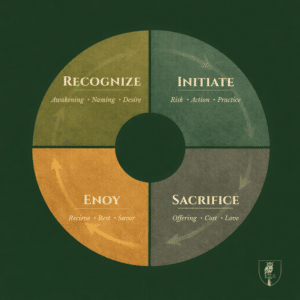I know I am forgiven, but can I ever get over the shame of my sexual past?
I do not believe any of us makes it through life without some experience of sexual shame. We often hide this part of ourselves believing our sexual desires are somehow wrong or just not normal. We hide because of shame.
Shame thrives in the soil of secrecy, silence, and judgment. And there is no shortage of these when it comes to our sexual lives.
Much beyond respectful privacy, we detach the sexual part of our lives from our day-to-day lived experiences with others. It seems we can only tolerate each other as social beings, which forces us to keep our sexuality hidden in secrecy and masked with silence.
We don’t talk about our personal thoughts and feelings regarding sexuality, nor do we wonder together what God might be showing us through this part of His creation. As such, we miss the power of relational presence and healing in the sexual part of our lives.
When we do speak, it is often in judgment, condemning sin. Certainly, there is a time and place to speak against sin; however, shame thrives when the only voice heard is one of judgment.
We fear how others might perceive us if they knew our sexual thoughts, feelings, and behaviors. This is often the fear of judgment rather than actual judgment. For the most part, people are not out to get us, but the fear of their judgment keeps us silent, and the silence keeps us stuck in shame.
Shame is related but different than regret. Regret is rightly experiencing the guilt of our sins. This is when we kick ourselves for going against what we know is right.
However, the painful message of shame is not that we are guilty and stand in need of repentance, but rather that we are flawed and therefore unworthy of love and belonging.
In our shame, we then attempt to hide our flaws in hopes of still appearing lovable to others. Yet when we hide we cannot truly connect. We might look good on the outside, but we remain isolated and alone, not truly known even when we are in relationship with others.
As much as we would like to go back and change our past, we can’t. Like words, once spoken the past cannot be unspoken. But the good news is that it can be added to, corrected, and amended. It can be redeemed.
When we add the presence and love of Christ to our past, it doesn’t change what has happened, or remove the scars, but it does allow for restoration. As His blood covers our past sins, we can now tell a story of redemption in which our scars are made beautiful.
While we might know this truth theologically, we must experience this truth in relationship with others.
We do this by sharing our stories with each other, bearing each other’s burdens and forgiving. The healing of shame must be done in relationship, and these relationships must go beyond casual connecting.
We must have the courage to allow ourselves to be fully known in the presence of another, to let them see the ugly parts of our story and love us anyway. This is risky and not everyone can go there with you, but healing from shame requires us to be willing to go there with someone.
Who are you sharing your story with? Are you willing to let others see and add their presence and love to those shameful parts? Do you believe the courage it takes to be vulnerable is worth it?


